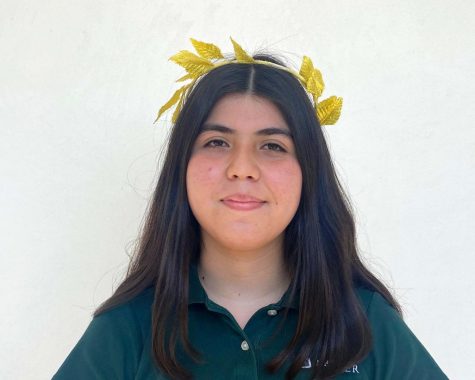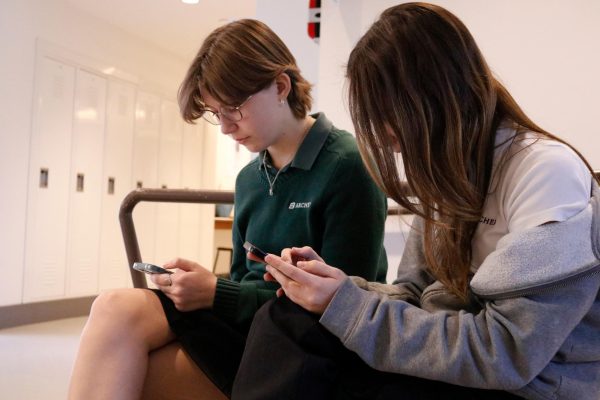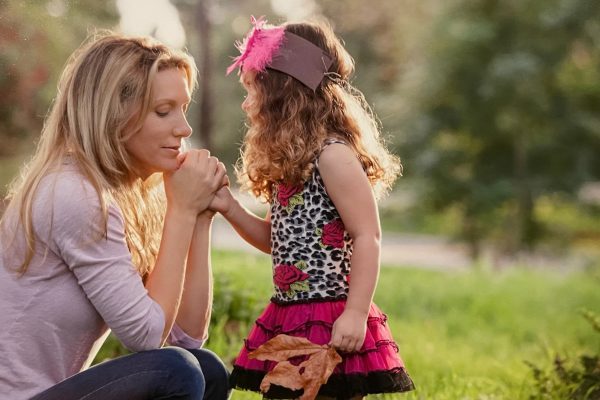Op-Ed: What being first-generation means to me
Photo credit: Lizette Gonzalez
This picture is a literal, illustrative metaphor of my parents’ unconditional support and love that pushes me through any obstacle. The pressures of being a first-generation student and being the oldest sibling in the family can be hard sometimes, but I wouldn’t change it for the world.
November 7, 2021
Ever since I was little, I grew up listening to countless stories about my parents’ life in Mexico. Many of them now feel like parts of my own memory. My mom and dad immigrated to the United States in their early teen years. Not only were they in search of the American Dream themselves, but they also strived to create a better life for my younger sister and me.
This makes me a first-generation Mexican-American. But, what does being first-generation even mean? I’ve thought about this question a lot since I was small. Sometimes, when I look at definitions, I feel like there’s so much more to it than what I read online.
According to Merriam-Webster, first-generation means “born in the U.S — used of an American of immigrant parentage.” When referencing first-generation students, definitions vary, but the most common one seems to be this: being the first in the family to attend college.
All of my life, I’ve completely collapsed into the first definition. Lately, I’ve been thinking a lot about that second one. As a high school junior who’s about to start the college process, I have started to experience a whirlwind of emotions — many of which I still fail to even comprehend.
At home, education has always been put on a high pedestal for me. Despite the fact that my parents weren’t able to receive the opportunity of higher education, they give their blood and tears for my sister and me to receive one. If that doesn’t describe my parents, I don’t know what can. These expectations are things that I certainly agree with and will be eternally grateful for, but it can get overwhelming.
It feels wrong to be able to have these opportunities. It feels wrong to be on the journey of accessing a higher education when I still see the hard work they do every single day. It just feels wrong.
I know that feeling this isn’t fair. Trust me, I know.
Either way, it’s hard to ignore the little voice in my head that has internalized these messages. That little voice is constantly whispering in my ear that if I don’t end up where it envisions, I will fall short of my parents. I will fall short of being the role model I have to be for my younger sister. I will fall short of all the sacrifices that they made for her and me.
And I mean, how can I not? How can I not achieve success when I don’t have to worry about a language barrier like they did? How can I not be able to do this when I have my family here and don’t have to leave them behind? How can I not? Shouldn’t it be easier for me?
According to a survey done by Inside Higher Ed, most first-generation college students show more academic engagement and commitment than their peers but lack resilience when facing challenges or feeling comfortable in social activities.
This is in no way surprising to me. Although I am not a college student yet, this is something that I, too, have noticed within myself and other first-generation students. We are so focused on giving it our all to our education and journey to success that we forget about taking care of ourselves.
Despite my parents’ unconditional and loving support, I can’t seem to get rid of that little voice in my head. I can’t get rid of the million questions that ring inside of me.
But, you know what? Here are the things that I would never want to get rid of.
I would never want to get rid of the support my parents give me every day no matter what happens. I would never want to get rid of being able to come home and tell my family about my day and see the smiles that emerge. I would never want to get rid of this aspect that makes me who I am.
I have learned to accept that it is hard to navigate this world with this accumulated pressure. I have also learned that I should see the other side of this. I should turn around the things that society tells me are wrong. Because they are not wrong at all.
The truth is that the fact we are even here is success enough. The fact that we are breaking multi-generational barriers is success enough. The fact that we are pushing through even when we are defeated and exhausted is success enough.
To those who are reading this and are first-generation: let’s use all of this as motivation and fuel.
Let’s own it. Let’s own this part of our identity. This time, do it for yourself too, though. Let’s keep on pushing and facing every obstacle that we encounter. Not only for our family and in memory of every single sacrifice they did for us, but for us too. We deserve to do this for ourselves too.
I’m not going to forget about how hard this is, because it isn’t. It won’t get easier. But, look at how far we have come.
I have learned to realize that there is never a set solution to these types of things. Sure, it’s not what we hope for, but it certainly is something that we can own.
We can control our own narratives. We are the only ones that can design our journey. Why? Because, ultimately, it is us — our families and ourselves — who are on this journey. A journey that we write. A journey that is no one else’s.
This is what being first-generation means to me.





![Freshman Milan Earl and sophomore Lucy Kaplan sit with their grandparents at Archer’s annual Grandparents and Special Friends Day Friday, March 15. The event took place over three 75-minute sessions. “[I hope my grandparents] gain an understanding about what I do, Kaplan said, because I know they ask a lot of questions and can sort of see what I do in school and what the experience is like to be here.](https://archeroracle.org/wp-content/uploads/2024/03/grandparents-day-option-2-1200x800.jpg)






























































Samantha Hazell-O'Brien • Nov 14, 2021 at 8:04 am
Thank you, Lizette. The vulnerability you shared in your journey is also shared by so many reading this piece. You have removed the veil for people to know there is no shame.
Tiffany Smith-Anoa'i • Nov 9, 2021 at 5:04 pm
Beautifully written Lizette. Your journey is unique to YOU and no one gets to write it for you. Remain relentless in your pursuit of what best suits YOU, quiet those little voices and continue to use your BIG voice, always and in ALL WAYS! BRAVA!!!
Samantha Garibaldi • Nov 9, 2021 at 3:06 pm
“That little voice is constantly whispering in my ear that if I don’t end up where it envisions, I will fall short of my parents. I will fall short of being the role model I have to be for my younger sister. I will fall short of all the sacrifices that they made for her and me.” Yesss! I also feel this pressure of being a first-generation student. That need to make them proud and make their sacrifices worth it.